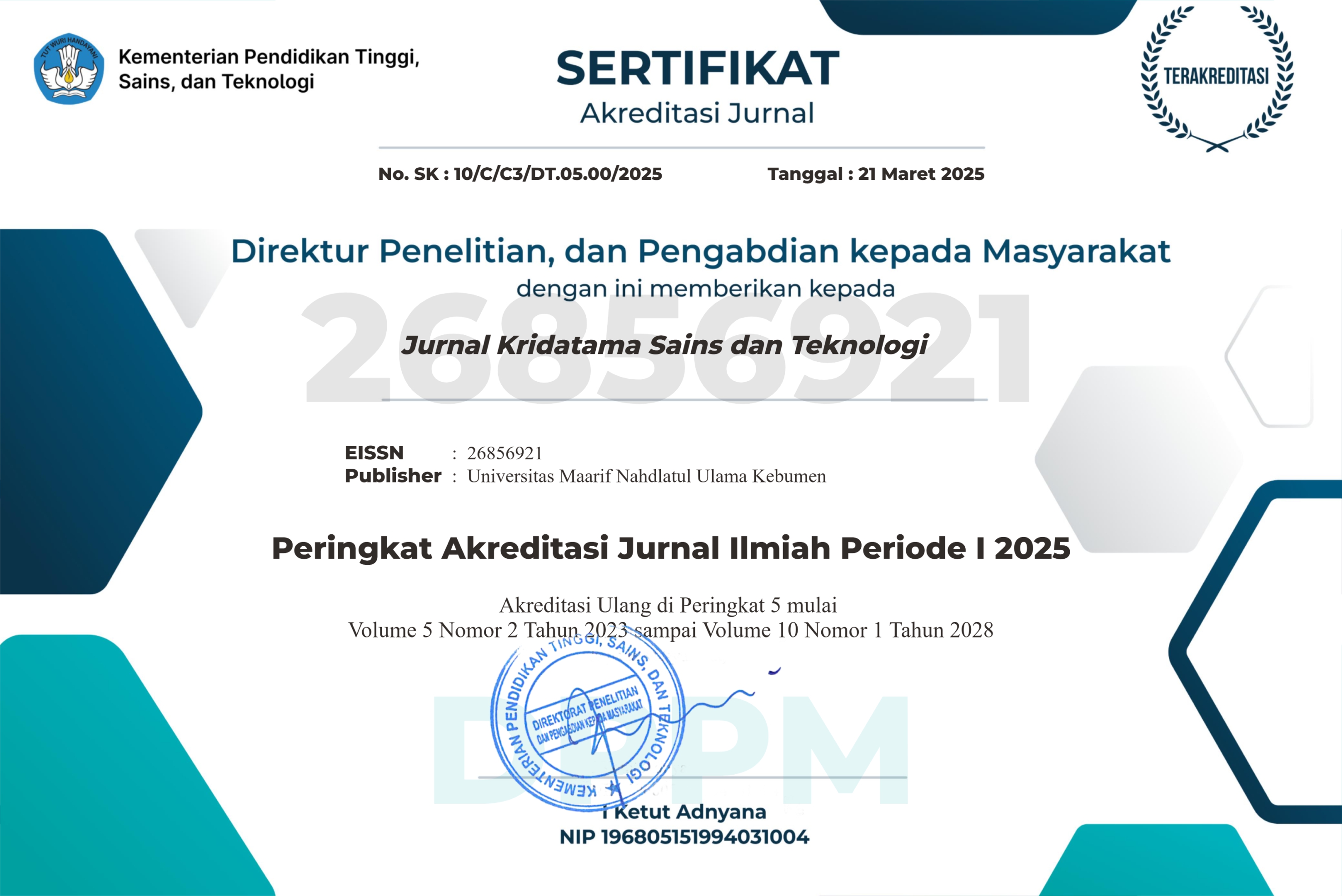Improving Students’ Vocabulary through “Word Square Method”
DOI:
https://doi.org/10.53863/kst.v6i01.1078Keywords:
Vocabulary, Word square, ImprovingAbstract
Vocabulary refers to the set of words that a person is familiar with in a particular language. It includes words that an individual understands, recognizes, and can use in speaking, writing, listening, and reading. The question of the research was “How can word square method improve the students’ vocabulary?”. The objective of the research was to improve the students’ vocabulary at the first grade of SMP Negeri 1 Tanggetada. This research was a classroom action research that followed a particular set of actions, namely: preliminary research, planning, action, observing, analyzing and reflecting in each cycle. The aim of this research was to improve the students’ vocabulary mastery. The researcher used two instruments to obtain data, namely vocabulary tests that were administered on the fourth meeting of the first and second cycle, and observation sheets that were filled out throughout the meeting to observe the students’ behaviours during teaching and learning activities. The research resulted in significant improvement of the students' vocabulary mastery, as well as their activities in the classroom. There were two cycles in this research. The first cycle was failed because only 36% of the students were able to pass the minimum score (75)because the students did not yet understand the word square method. After the second cycle was implemented, and the researcher’s innovation in conducting word square in the classroom, 80% of the students were finally able to pass the minimum score which meant that the research was successful. Therefore, the research could be stopped.
References
Adebileje, A. (2016). Forms and the Function of the English Noun Phrase in selested Nigerian text. IOSR Journal of Humanities and Saocial Science (IOSR-JHSS). Nigeria. Vol. 2.
Al-Hasaani et al. (2016). A Case Study of English and Arabic Adjectives in Attribute Position at Aden University. International Journal of English Language Teaching. Saudi Arabia. Vol. 4.
Alamsyah Said & Andi Budimanjaya (2015), 95 Strategi Mengajar Multiple Intelligencess, Jakarta : Kencana.
Ambarwati, R., & Mandasari, B. (2020). The Influence of Online Cambridge Dictionary toward students’ Pronunciation and Vocabulary Mastery. Journal of English Language Teaching and Learning, 1(2), 50-55.
Amin, T. S., & Yulia, S. H. (2022). Enhancing Students’ Vocabulary Mastery through Word Square Model. Professional Journal of English Education, 5(5), 997-1002.
A Newing (1994) Henry Ernest Dudeney Britain’s greatest puzzlist, in R K Guy and R E Woodrow (eds), The lighter Side of Mathematics Spectrum 21. Washington, 294-301
Andrew and Wright, (2007) Games for Languange Learning. Cambridge : Cambridge University Press.
Arikunto, S. (2016). Dasar-dasar evaluasi Pendidikan. Jakarta: Bumi Aksara.
Aqib, Zainal dan Murtadlo, Ali (2016), Kumpulan Metode Pembelajaran Kreatif dan Inovatif. Bandung : Satu Suna.
Berta, (2020) Improving the students’ Vocabulary Mastery Through Word Square. Dr. M. Sobry Sutikno (2009) Belajar dan Pembelajaran. Bandung : Prospect.
Fauziti, E (2010) Teaching English as a Foreign Languange (TEFL). Surakarta : Era Pustaka Utama
Fitri, N. (2018). Improving students’ Vocabulary Mastery by Using Short English Game At The Eight Grade of SMP Dwijendra Denpasar.
Hardiyanti et al. ( 2015). Errors Made by the Seventh Grade students Using Personal Pronoun. E-journal of English Language Teaching Society (ELTS). Vol. 3.
Harmer, J (2007). The Practice of English Languange Teaching (4th Ed.). USA Pearson Education Limited.
Hasibuan, (2017). Improving the students’ Vocabulary Mastery through Word Square Method at Seven Grade of State Islamic Junior High School Sibuhuan.
Hasibuan, D., & Juliana. (2020). The Effect of Word Square Model on Students’ Vocabulary Mastery. Jurnal Fisik, 1 (1), 46-57.
Istarani. (2012) 58 Method Pembelajaran Inovatif “Word Square”. Medan: Media Persada.
Kemmis & Taggart (1990), The Action Research Planner. Victorio. Deakin.Unive Press
Khaisaeng, Sukany, and Dennis K.Nutpraha (2017). A Study Part of Speech Used in Online Students Weekly Megazine. Thailand, Vol 5.
Komariyah (2010). Penerapan Metode Word Square Dalam Pembelajaran Ibadah Muamalah Untuk Meningkatkan Keaktifan Siswa Kelas VII B SMP Muhammadiyah 2 Kalasan (Yogyakarta: Skripsi Universitas Islam Negeri (UIN) Sunan Kalijaga)
Kurniawan, Iwan and Seprizanna. ( 2016). An Analysis of s t udents? Ability in using Subject-Verb Agreement. English Education: Journal tradis Bahasa Inggris. Lampung. Vol. 9.
Mandasari, B., & Aminatun, D. (2020). Improving students’speaking Performance an exploratory study of management and engineering students. Premise Journal, 7(2), 61-79.
Mandasari, B., & Oktaviani, L. (2018). English language learning strategies: Movie at the Eleventh Grade of SMA N 8 Kota Jambi.
Manurung, J. E., Setiawan, H., & Sianturi., Febby G. S. (2021). Improving Students’ Vocabulary Mastery by Using Word Square Technique to Students of SMP Methodist 1 Palembang. Journal of English Education, 2 (2), 97-108.
Marta, R (2017). Peningkatan Hasil Belajar IPS dengan Menggunakan Method Word Square Sekolah Dasar. Lembaran Ilmu Pendidikan, 46 35-40.
Mawar, S., Eka, S. H., Fitri, R. S. (2017). Improving Students’ Vocabulary Mastery through Word Square Modeling at Grade VII SMP Negeri 5 Padangsidumpuan. Jurnal Peneltian Ilmu-ilmu Sosial dan Keislaman, 3, (2), 235-250.
Downloads
Published
How to Cite
Issue
Section
License
Copyright (c) 2024 Susi Astiantih

This work is licensed under a Creative Commons Attribution-ShareAlike 4.0 International License.
Authors retain copyright and grant the journal right of first publication with the work simultaneously licensed under a Creative Commons Attribution-ShareAlike 4.0 International License that allows others to share the work with an acknowledgment of the work’s authorship and initial publication in this journal

















